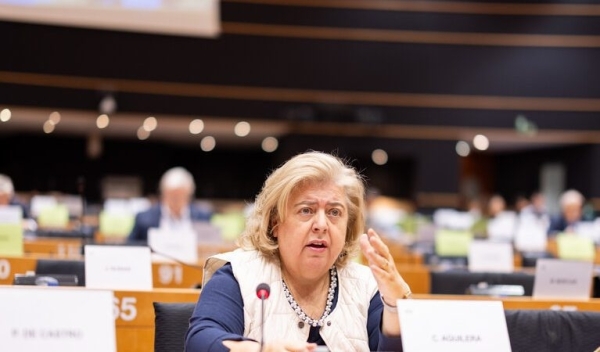MEPs approve plant protection proposal, creation of task force to combat pests

Members of European Parliament are proposing the creation of an EU plant health emergency team to help EU or third countries to prevent the emergence of pathogens as part of the revision of plant health legislation voted through the Agriculture Committee of the European Parliament on Tuesday (13 February),
The EU has updated its plant health legislation many times since the 2000s, and on 17 October 2023, the Commission tabled a proposal to simplify rules and make them more effective, which lawmakers have now adopted.
These harmful organisms, which are becoming increasingly widespread due to global trade and climate change, have significant social, environmental and economic consequences.
EU plant health emergency team
In July 2022, the spread of a South African pest, the false codling moth, prompted the EU to impose South African farmers a cold treatment for all oranges destined for Europe. South Africa lodged a complaint with the World Trade Organisation (WTO).
After a call for action from farmers’ organisations and MEPs, the Commission revised the Plant Health Regulation.
Creating an EU phytosanitary emergency team is among the amendments of the MEPs. This team, made up of experts appointed by the Commission and nominated by the member states, would help countries in the EU or neighbouring third countries to prevent the introduction and spread of harmful organisms.
MEPs said that the task force could involve “scientific, technical and administrative assistance on the ground or at a distance” to eradicate harmful organisms.
Support could relate to “appropriate diagnostic methods” or promote “coordination between the competent authorities of the Member States and third countries”.
Rapid detection of dangerous organisms
MEPs backed the European Commission’s call for multiannual risk survey programmes to be implemented to rapidly detect dangerous harmful organisms.
They also believe that the regulation should “strengthen” the provisions on regulated non-quarantine organisms (RNQOs), i.e. organisms already present in EU territory and requiring strict control. They will have to be included in the phytosanitary certificate.
The text approved by the Agriculture Committee will now be submitted to the plenary session of the European Parliament from 26 to 29 February and then to the Council.

EFSA chief shares inconvenient truths about sustainable food, Green Deal
Topics such as the changing of food habits and who bears the cost for the transition are politically sensitive and are not addressed in the debate on sustainable food systems, said EFSA director Bernhard Url, who is expected to leave in May after 10 years at the helm of the Authority.
Read more with Euractiv




